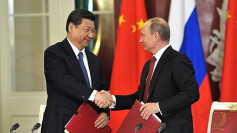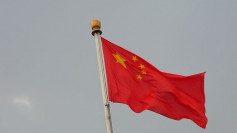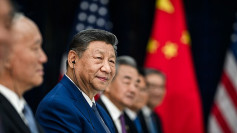Germany's Finance Minister Lars Klingbeil arrives in Beijing this week under mounting pressure to address a rapidly widening trade imbalance with China, a deficit that reached €87 billion this year-Germany's largest on record. The visit marks the first by a cabinet minister from the new coalition government and comes amid intensifying concern across Berlin that the country's core industries no longer operate on equal footing with their most important trading partner.
The diplomatic backdrop is increasingly unstable. The planned visit follows a scuttled trip by Foreign Minister Johann Wadephul, underscoring China's growing willingness to exert pressure on German officials. For business leaders-particularly those in autos, machinery and chemicals-the Beijing meetings represent a pivotal moment as they confront falling exports, rising competition and an eroding market position in China.
Germany's industrial relationship with China once anchored its economic model. Automakers such as Volkswagen and BMW spent decades building joint ventures, transferring technology and establishing production networks calibrated for long-term mutual benefit. But that formula has inverted sharply. As German firms clung to combustion engines, Beijing built a full electric-vehicle supply chain through subsidies and industrial planning under programs such as Made in China 2025, enabling domestic brands to outpace traditional European manufacturers.
The shift is evident in market performance. Between January and August, German exports to China fell 13.5%, while Chinese imports into Germany rose 8.3%. German market share in China's auto sector has collapsed from 53% to 33% since 2022, coinciding with the rise of BYD, which recently overtook Volkswagen as China's best-selling brand. Chinese EV makers have begun expanding aggressively in Europe, increasing pressure on German manufacturers already grappling with shrinking margins.
Many German companies are responding by embedding operations more deeply inside China rather than retreating. The "in China, for China" model-co-locating R&D, supply chains and software development within the country-has become a primary survival strategy for firms seeking to remain competitive in the world's largest auto market.
Klingbeil's challenge is compounded by geopolitical cross-pressures. As the U.S.-China trade war accelerates, Chinese exporters have redirected shipments into Europe, intensifying competition in sensitive sectors. In Berlin, policy divisions have hardened between security-focused Greens in the Foreign Ministry and the more industry-oriented Social Democrats in the Chancellery, creating inconsistent messaging on risk management and industrial policy.
Officially, Germany and the European Union have adopted a "de-risking" framework aimed at reducing dependency on Chinese supply chains without pursuing outright decoupling. In practice, the approach is faltering. Investment flows from German multinationals into China continue to grow, and Beijing has dismissed Europe's de-risking language as a thinly disguised form of decoupling, complicating attempts at diplomatic reassurance.






